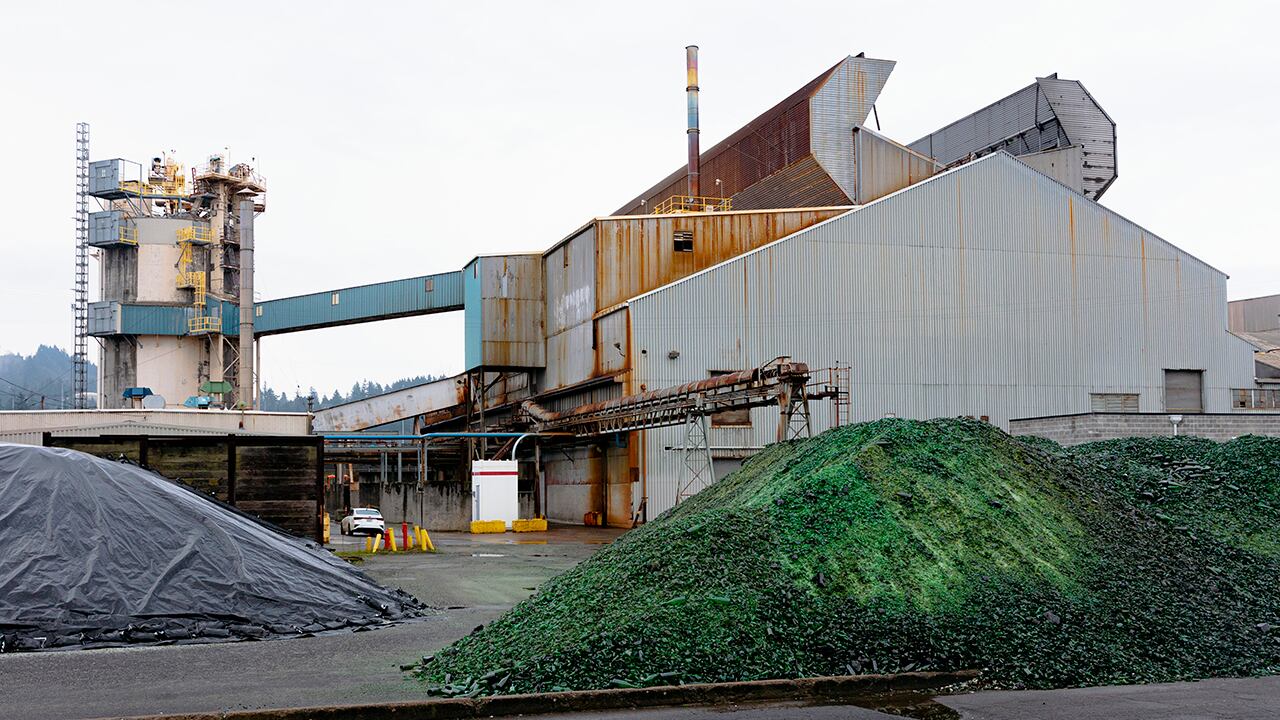Portland City Commissioner Carmen Rubio will revamp a controversial proposal to create two new fees on carbon emissions, after WW reported the plan was likely to shutter the only glass recycling plant in the state.
"The goal of reducing carbon emissions in the city is very much alive," says Rubio, who oversees the city's Bureau of Planning and Sustainability. "The shape of the strategies is what we are discussing now."
WHAT HAPPENED: Rubio, who took office in January, inherited the Bureau of Planning and Sustainability—and its signature policy initiatives, two new fees on carbon emissions.
In November, before Rubio took office, the bureau introduced the tax proposals and originally hoped to rush them through the lame-duck City Council while it still included two commissioners, Amanda Fritz and Chloe Eudaly, who were finishing their terms and wouldn't have to deal with public rancor.
BPS proposed two new taxes: a per-ton charge on any company that produced 2,500 or more tons of carbon annually, and a tax of $15,000 to $40,000 on about 80 companies that hold state emissions permits. Portland set its sights on becoming the first city in the U.S. to levy a tax on greenhouse gas emissions.
The city's analysis showed the two taxes would have raised about $11 million a year—with a third of that money coming from just two companies: the Owens-Brockway glass plant in Cully (paying $1.02 million a year) and Evraz Steel in North Portland ($2.72 million).
The quick march of the taxes didn't work. In January, Rubio and Mayor Ted Wheeler hit the pause button. At the time, BPS officials told WW they hoped to bring the taxes back to the council in early March.
But Rubio personally communicated with more than 20 stakeholders and concluded the policy needed substantial reworking.
"How I like to work is really listening to learn," Rubio says. "I have failed enough times to know that if you engage first and listen and learn, it will make something better in the end."
WHY IT HAPPENED: One potential fallout of the tax proposals Rubio heard about was the threat to Oregon's Bottle Bill.
In January, based on 1,300 pages of city emails, WW reported that city bureaucrats had put the taxes together with little analysis of their effects, without consulting the companies that would pay, and without regard for unintended consequences ("Glass Houses," WW, Jan. 27, 2021).
Among the companies kept in the dark: Owens-Brockway, the only glass recycler in Oregon, which melts down the equivalent of 440,000 beer bottles a day. But the plant is struggling as beer- and winemakers turn to alternative packaging. It laid off about half its employees in 2019 and now faced the prospect of more than $1 million a year in new taxes.
The Oregon Beverage Recycling Cooperative, which manages the Bottle Bill, says it gave Owens-Brockway a $500,000 subsidy last year to help keep the plant operating and avert one consequence of its closure: The cooperative would have to truck tens of millions of bottles out of state or throw them in a dump.
Rubio says she also heard about what the taxes could cost in jobs. Evraz, the biggest would-be carbon taxpayer, imports giant steel slabs and rolls them into steel sheet for manufacturers and fabrication shops across the Northwest.
Evraz took the tax seriously enough that the company commissioned a public opinion poll in January to test messages for defeating it. A key question: "Given that carbon emissions don't recognize boundaries, where should emission reduction policies be implemented?" Only 7% of respondents said "locally."
Evraz and others told WW they objected to what they saw as a revenue-raising measure disguised as environmental policy. "We are pleased to hear reports the city may no longer be pursuing this flawed proposal," says Evraz spokesman Patrick Waldron. "Rejecting and no longer pursuing this city carbon tax is the right decision."
WHAT HAPPENS NEXT: Rubio says BPS, with the help of a wide range of stakeholders, will craft a policy over the next few months that prioritizes reducing emissions and improving air quality—rather than simply raising money.
"We'll figure how to achieve the goals first, then we'll figure out how to pay for it," she says. "We need to lead with the why and the what, and then we talk about the how."
Jules Bailey, chief stewardship officer for the recycling cooperative, says he's relieved Rubio is taking a fresh look and keeping the Bottle Bill in mind.
"I have been incredibly impressed about how Commissioner Rubio has been engaged in personally reaching out to stakeholders," Bailey says. "She's looking for a path forward that will work for critics and advocates alike and that reduces carbon emissions."

